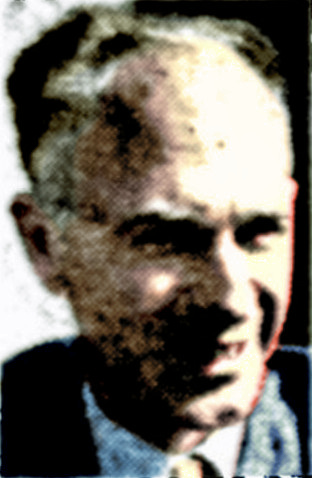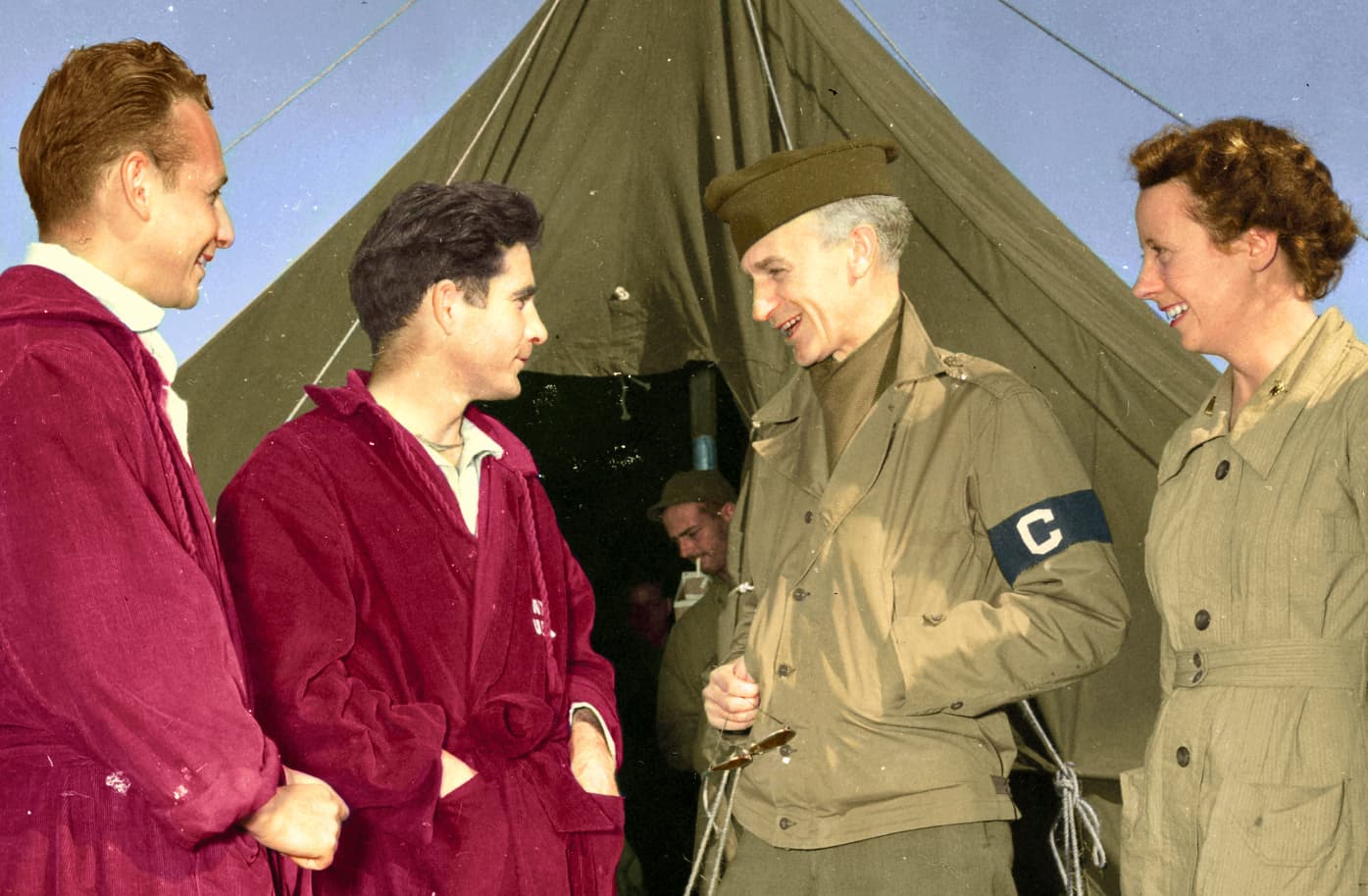The Pittsburgh Press (December 26, 1942)

Roving Reporter
By Ernie Pyle
Oran, Algeria – (by wireless)
The American soldier is an incurable wishful-thinker. Today the average soldier in North Africa, despite the slow going in Tunisia and the long distances we still have to go, thinks the war will be over by April.
The censors tell me that the soldiers’ letters home are full of such belief, and I know that in the camps they are willing to bet good money on it whenever they can find a taker. If you try to point out that such a quick victory is against all logic, and that even a year from now would be pretty optimistic, they look at you as though you were nuts.
Mail has started coming to the troops again in enormous gobs, after a blank of more than two months. Lt. Herbert Desforges, a friend of mine from Gallup, New Mexico, got 20 letters from his wife the other day. Another friend, Lt. Bill Wilson of Des Moines, got 30 personal letters in one day.
They tell a story about one soldier who hadn’t heard from his wife in three months, and finally was so disgusted he wrote her and told her to go to Hell, saying he was going to get a divorce. Then in one huge batch came 50 letters, covering the whole three months. So, he’s had to cable her and take back the divorce threats.
As for me, I have been the recipient of only two letters – one from a girl in Pittsburgh wanting me to say hello to her soldier sweetie, and one from a reader in Iowa telling me that eggs were plentiful and only 38¢ a dozen. I suppose my 50 family letters are at the bottom of somebody’s ocean.
Our soldiers are all over being seriously homesick now, but they do constantly think about home. Even a general said the other day:
What I wouldn’t give for 24 hours in New York. I’d just like to see how it looks and hear what people are saying.
What are the folks thinking?
And as I travel about the camps, the question I’m most frequently asked is:
What are the folks at home thinking about?
…never “What are the papers saying?”
Unfortunately, I don’t know any more about this than they do. In fact, even less, since the Post Office Department apparently considers me unworthy to receive mail. All I know is what I read in the French newspapers, such as an item about America building 32,000 “chars” in the past year. I assumed that a “char” was a chair or a charwoman, but my French dictionary swears it means chariot. So, all I can tell the boys at the camps is that there’s apparently some mighty funny business going on in America. Thirty-two thousand chariots indeed!
Rumors are almost as numerous here on land as they were aboard ship coming down. Today, for example, it was rumored all over town that Tokyo had been bombed by 400 planes, that a thousand American planes were over Germany, that Deanna Durbin has died in childbirth, that Jack Dempsey and Bing Crosby had both kicked the bucket.
No, we don’t know what you are thinking at home, but I hope you aren’t letting yourselves believe we’ll all be headed for New York by spring.
Few troops in action
My powers of prediction are pretty feeble, but as I see things, this neighborhood may not be very exciting for some little time. After the initial occupation, there necessarily follows a period of getting established and building up immense stocks of men and supplies. We are in the middle of that period over here.
Only a very small portion of our troops in North Africa are in action now. The remainder of the combat troops are just waiting and a huge organization of supply troops is busy day and night back of the lines, as it will always be.
We are, it seems to me, in another period of waiting to strike, as Mr. Churchill says, when it suits us best and Hitler least. I have no idea when or where that will be.
El Agheila looks on the map like an afternoon’s drive from Algeria, but actually it’s as far as from New York to Kansas City. So don’t get impatient if nothing much seems to happen for a while.

